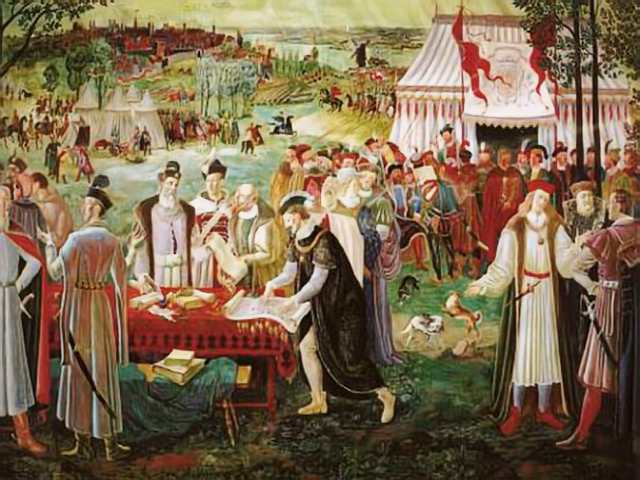Explore Poland’s historical role in pioneering religious freedom, from the Warsaw Confederation in 1573 to its present-day commitment within the European Union.
Poland’s Pioneering Path to Religious Freedom: Unveiling the Roots and Progress
In the contemporary landscape, the idea of religious freedom often evokes thoughts of modern democracies, with the United States prominently hailed for its constitutional principles. However, the roots of religious freedom extend beyond the shores of America, with Poland playing a pivotal role in shaping the narrative of tolerance and liberty.
“Freedom of religion” transcends the confines of geography and is a concept universally associated with the acceptance of diverse beliefs, spanning Christianity, Judaism, Islam, Buddhism, Hinduism, Scientology, and more. It is a testament to individual liberty, encapsulated by the phrase “freedom of worship,” allowing individuals to practice their faith without fear of persecution, fines, or imprisonment.
The trajectory of religious freedom has been punctuated by significant milestones throughout history, revealing a nuanced tapestry of acceptance and, unfortunately, at times, intolerance. Cyrus the Great, in the 500s BC (BCE), established religious freedom in the Achaemenid Empire. Ashoka the Great, in the 200s BC, issued edicts in India championing religious freedom. Muhammad declared religious freedom for Muslims, Jews, and pagans in the 600s AD (CE), while Roger II fostered religious tolerance in the Norman Kingdom of Sicily in the 1100s.
Amidst these positive strides, Europe was often marred by religious divides, resulting in persecution, punishment, war, and extermination. The intricacies of conflicts between Catholics, Protestants, Church of England, Puritans, Jews, and pagans created a tumultuous history of religious strife.
A pivotal moment in the journey towards religious freedom occurred on this day in 1573, when the Polish national assembly signed the Warsaw Confederation, granting religious freedoms. While unwritten customs of tolerance existed in the Polish-Lithuanian Commonwealth, this law may have been the first formal, written religious freedom law created by a European assembly.

Though legislation alone cannot eradicate prejudice and conflicts, the Warsaw Confederation significantly contributed to making the Polish-Lithuanian Commonwealth a safer and more tolerant haven than many parts of Europe during that era. Situated between Orthodox Muscovy in the East, the Muslim Ottoman Empire in the South, and the warring Reformation and Counter-Reformation in the North and West, Poland emerged as a refuge for people from diverse backgrounds, a sanctuary for those deemed heretics.
Fast forward to the present day, where Poland, though predominantly Catholic, stands as a symbol of religious diversity within the European Union. The EU’s commitment to religious freedom is encapsulated in the statement: “Everyone has the right to freedom of thought, conscience, and religion; this right includes freedom to change his religion or belief and freedom, either alone or in community with others and in public or private, to manifest his religion or belief, in worship, teaching, practice, and observance.”
As we reflect on Poland’s historical contribution to religious freedom, it serves as a reminder that the journey towards tolerance is ongoing, and nations around the world continue to strive for a harmonious coexistence of diverse faiths.






















